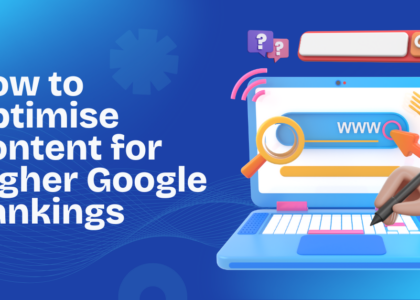Hybrid vs. How do you decide which Native Apps are most suitable for your business needs?
The digital age demands a mobile presence that can both engage with customers and promote growth. The choice between hybrid and native apps is a vital aspect to consider when building if your app is going to be mobile. The benefits and drawbacks of each are significant, making it crucial to choose the one that best suits your business objectives.
For app developers looking for expert solutions, contact the Indian Technology Company. Discuss Hybrid and its alternatives.’ What are the advantages of Native Apps, their features, and which one is best for your business?
Understanding Hybrid and Native Apps.
Understanding hybrid and native apps is crucial to choosing the right app development tool. What exactly do they stand for?
What Are Native Apps?
Native apps are created for a specific platform, such as iOS and Android, using specialized programming languages like Swift or Objective-C, Java, or Kotlin. They are installed directly from app stores and have access to device features such as camera, GPS systems or push notifications.
Key Features of Native Apps:
High performance and fast responsiveness.
UI/UX across different platforms to ensure a seamless user experience.
Access to all hardware and software functions of the device.
Offline functionality.
Enhanced security.
What Are Hybrid Apps?
Hybrid apps are a blend of native and web-based applications. They are constructed using a native container that incorporates web technologies like HTML, CSS, and JavaScript. Hybrid app development can be built across multiple platforms using a single codebase, thanks to frameworks like React Native, Flutter, and Ionic.
Key Features of Hybrid Apps:
Integrated software platform for iOS and Android platforms.
Faster development and deployment.
Cost-effective solution.
Is capable of integrating with devices via plugin access.
Must be connected to the internet for optimal results.
What are the advantages and disadvantages of Hybrid versus Native Apps?
- Performance.
Device hardware interaction leads to superior performance from Native Apps.
Especially complex applications may experience performance delays when using hybrid apps. This is problematic.
- User Experience (UX/UI)
Native apps: Deliver a smooth, fluid and responsive user interface that is tailored to the intended platform.
Due to the shared codebase, hybrid apps may not have as advanced UX features as native apps.
- Development Time & Cost.
Development of native apps for iOS and Android requires a significant amount of time and money. Additionally,
A single codebase that can accommodate multiple platforms is faster and more cost-effective with hybrid app development.
- Maintenance & Updates.
Native Apps require separate maintenance for various platforms.
The ease of synchronization with central updates for both platforms is enhanced by hybrid apps.
- Security.
Platform-specific security measures for Native Apps.?…
Hybrid Apps could require additional security measures to prevent potential vulnerabilities.
- Offline Capability.
Native Apps: Work seamlessly offline.
Almost all functions of hybrid apps are dependent on internet connectivity.
Which One Should You Choose?
Hybrid versus native apps are dependent on the business’s needs, budget, and long-term goals. Why? Here’s a quick guide:
Go for Native Apps if:
Your app needs to be high-performance, particularly in games or video streaming applications.
To maximize efficiency, it is essential to utilize advanced technology such as cameras, GPS, and sensors.
To prioritize a better user experience,
The budget and resources available for separate iOS and Android development are at your disposal.
Choose Hybrid Apps if:
You require an economical choice.
Developing and deploying quickly are crucial.
You want a single app for iOS and Android.
No high-performance features are necessary for your app to function properly.
What are the potential contributions of Indian technology firms?
When it comes to selecting between hybrid and native apps, Indian Technology Company can provide guidance and custom development services for businesses in need. From high-quality native apps to low-cost hybrid apps, we offer a complete mobile app package.
FAQs.
- Is it more advantageous to develop hybrid apps than native apps?
Businesses seeking cost-effective and speedy development can benefit from hybrid app solutions. Nevertheless, native apps are superior in terms of speed and functionality.
- Are there any similarities between a native and hybrid app? Request.
Although hybrid apps aim to emulate the behavior of native apps, they may not possess the same level of performance, responsiveness, and features as native applications.
- Are native or hybrid apps more costly to develop?
Due to the need for separate development across iOS and Android, native apps are more expensive. Hybrid apps that have a single codebase are more cost-effective.
- What is the top framework for creating hybrid applications?
Depending on project requirements and business goals, React Native, Flutter, and Ionic are some of the frequently used hybrid frameworks.
- What is the duration of app development?
Native apps: Typically 4–6 months.
It is possible to create hybrid apps within 2-4 months.
- Which one is better for my business, hybrid or native? How do I choose?
Analyze factors such as cost, performance requirement, audience size, and desired features. The right decision can be made by consulting an expert like Indian Technology Company..
Final Thoughts.
There are pros and cons to both native and hybrid apps. It’s your business, budget and long term plan. What to do?… Indian Technology Company provides customized app development solutions that ensure optimal performance and user satisfaction.
Is your mobile app ready-made? Request. Contact Indian Technology Company today for professional guidance and high-quality app development solutions!







